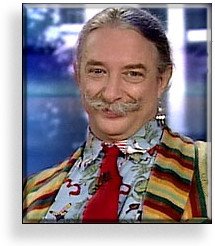 Published on Friday, October 27, 2006 by CommonDreams.org
Published on Friday, October 27, 2006 by CommonDreams.org Joan Baez, After All These Years
By John Dear
"Come back, Woodie Guthrie, Come back, Mahatma Gandhi,” sang Joan Baez in her beatific soprano. “Come back to us Malcolm X and Martin Luther King. We’re marching into Selma as the bells of freedom ring.”
She’s been singing for peace and civil rights for forty-eight years. Originally inspired by Pete Seeger, she captured the attention of the nation in the early 1960s, her politically charged music propelling her to the cover of Time magazine long before Bob Dylan and the Beatles. To my mind, as soon as she sang “All My Trials, Lord,” the 1960s were born and the culture turned a corner. Music and politics would never be the same.
Today, she’s better than ever. Her voice is strong, her vision clear, and her call for peace and justice just as urgent. She continues to use her extraordinary talent for global peace and brings the power of music to the needs of the world.
Joan Baez has long been one of my heroes. She was in New Mexico last week to perform a slew of folk songs against the latest U.S. war, including Bob Dylan’s “With God On Our Side,” “A Hard Rain’s A Gonna Fall,” and “It’s All Over Now Baby Blue.” She also sang “Finlandia” and a moving rendition of “Amazing Grace.” “Any Day Now/ Baez Sings Dylan” is my favorite of her CDs, but she has just released a great new CD, Bowery Songs, with these inspiring songs recorded live in New York.
I was thrilled that Bruce Springsteen recently recorded some of Pete Seeger’s folk music and anti-war songs, and hope Joan gets the same recognition. If I had any say in the matter, she’d win a place in the Rock ‘N Roll Hall of Fame, a Lifetime Achievement Award from the Grammies, and the Nobel Peace Prize.
Joan learned from Pete Seeger and then the writings of Gandhi to use her art for social change. She shows us that every peace and justice movement needs every possible creative outlet--music, painting, poetry, drama, film and literature--to help uphold the vision of a new world without war, poverty or nuclear weapons. These movements need everyone of us to contribute whatever we can. In fact, everything we do should serve peace and justice, the coming of God’s reign of nonviolence here on earth.
Over the years, Joan has helped me with various causes and protests. Once, an envelope from her arrived at my door and nestled inside was a large drawing she made of me speaking for peace. She’s a friend and more—she’s one of my teachers.
After the show I told her stories of my recent civil disobedience action against the U.S. war on Iraq, the September 11th Peace Walk from Thomas Merton’s hermitage to Louisville, and our ongoing campaign to disarm Los Alamos. But then I grew pensive and confessed a nagging thought. The actions are necessary, I said, but they sure seem futile.
“Well, John, you know what Gandhi said, right?”
“What?”
“Full effort is full victory.”
“Okay, Joan,” I returned. “I'll keep at it.”
Joan herself has kept at it a long time. She walked for civil rights in the South, befriended Dr. King, sang at the 1963 March on Washington, read poetry with Thomas Merton in his hermitage, sang to Dorothy Day as she sat behind bars with the United Farmworkers, and supported dozens of movements for social change, from Poland to Chile to Nicaragua. In the 70s she ventured on a perilous trip to Vietnam, and like Daniel Berrigan and Howard Zinn, suffered under an interminable U.S. bombing raid.
Joan, like Dan, King, Merton and Day, has a rare commitment to nonviolence. Armed only with her guitar and her voice, she helps us envision a world without war or injustice. And to make her songs authentic, she practices what she sings. She marches, organizes, gets arrested, has refused to pay part of her taxes, and has joined countless demonstrations. Last month, for example, she was the featured guest in Prague at the national birthday party in honor of Vaclav Havel, the heroic former president of the Czech Republic.
We can create a new world of nonviolence, she teaches, “by studying, experimenting with every possible alternative to violence on every level. By learning how to say ‘No’ to the nation-state, 'No' to war taxes, 'No' to military conscription, 'No' to killing in general, and 'Yes' to cooperation, to building new institutions based on the assumption that murder in any form is ruled out, by making and keeping in touch with nonviolent contacts all over the world, by engaging ourselves at every possible chance in dialogue with people to try to change the consensus that it's okay to kill.”
In her famous essay, “What Would You Do If?” she concluded, “The only thing that’s been a worse flop than the organization of nonviolence has been the organization of violence.”
These days she ends her concerts with a moving rendition of Steve Earle’s hymn, “Jerusalem.” It rises like a prayer. Her prayer is her song and her life is her witness. Between witness and song, she still stirs hope for peace. After all these years.
“I believe they’ll come a day
when the lion and the lamb
will lie down in peace together
in Jerusalem.
“They’ll be no barricades then.
And they’ll be no wires or walls.
And we can wash all this blood from our hands,
all this hatred from our souls.
“And I believe that on that day
the children of Abraham
will lay down their swords
forever in Jerusalem.”
* ** *** ** *
John Dear is a Jesuit priest, peace activist, and author, most recently, of “You Will Be My Witnesses” and “The Questions of Jesus.” For info, see: www.johndear.org


